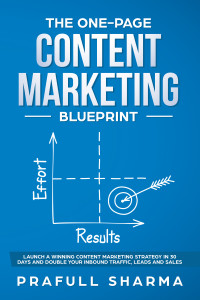Content Marketing Strategy: No More Boring Books
“….the internet has turned what used to be a controlled, one-way message into a real-time dialogue with millions.” –Danielle Sacks, Fast Company
If the latest statistics from Content Marketing Institute and MarketingProfs can teach us anything, it’s to show us the difference between the most effective and least effective marketers in the year 2014.
One of the stats with the largest difference in percentages is between those marketers who currently possess a content marketing strategy. 65% of most effective marketers have a documented content strategy, while 11% of least effective marketers have a documented strategy. In other words, over half of those labelled “most effective” have a content strategy. Or, 89% of least effective marketers do not have a content strategy.
Content marketing is responsible for creating the story. The story connects consumers to your business. An author can write a book full of words, but if the story lacks a theme and contains to purpose, why and how would you read it? The story needs to be compelling, connecting, and real. It doesn’t need to be long or dramatic, but it does need to be told in a way that resonates with consumers in order to draw them in.
Why do you need a content strategy?
- To define the message
- To connect (social media has changed everything)
- To build trust and loyalty
- To create a theme
- To build a more engaging environment
If content marketing is responsible for creating the story, think of content strategy as the storyteller, taking the message and theme to the audience in order to engage and excite them as they choose to come alongside to journey with your company.
Strategy is defined as “a careful plan or method for achieving a particular goal, usually over a long period of time”. If you think of content strategy like a road map (remember those?), it points your content marketing toward a set of goals as you travel further away from unproductive activities.
Content strategy is not best left to chance. Since a mere 66% of B2B marketers with no documented content strategy are creating more content than a year ago, and 80% with a strategy are creating more, it seems counterproductive to not have a content strategy in place.
Over at distilled.net, Hannah Smith writes, “content creation without strategy often leads to disparate content with no core themes or purpose.” She goes on to discuss generic content that results from a lack of strategy, which can lead to the delivery of your business’s message echoing in an empty space.
Your business can’t afford to write a book with boring pages. It is a waste of resources and effort to focus on developing great content without a purpose. Don’t be a part of the 11%. Developing and implementing a documented content strategy sets you up with a map to guide your business on the right path. With a developed content strategy, you have the opportunity to dialogue with an audience of millions as they are reached with your message in the most effective and connected way possible.
Share This Story
Get the latest growth ideas, strategies, and best practices delivered to your inbox.
Quick read that helps 7000+ subscribers.








